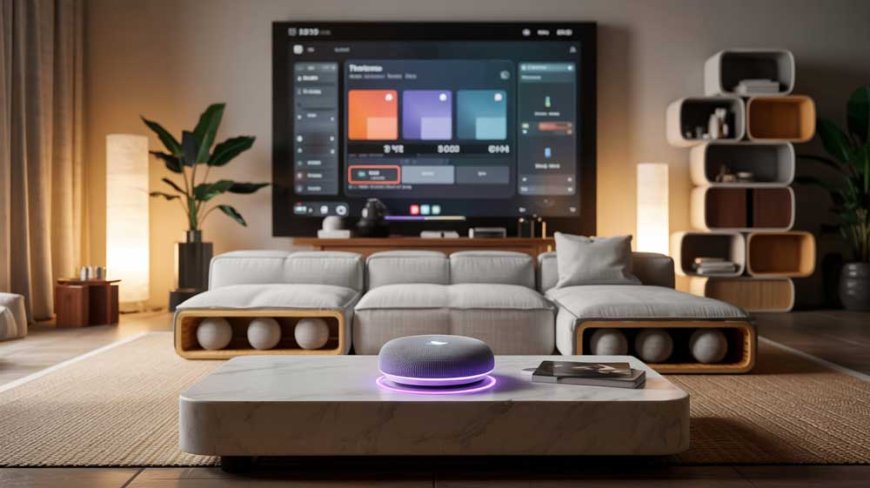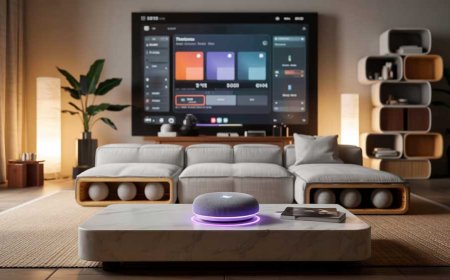Rising Demand for Convenience-Focused AI and Customizable Homeware Products in 2025
In 2025, consumer demand is soaring for AI-powered lifestyle solutions and customizable homeware, driven by a desire for convenience, personalization, and sustainability. This dual trend is transforming homes and shopping behaviors through intelligent automation and design flexibility.

In 2025, consumer preferences are being reshaped by a powerful combination of convenience and personalization. This shift is fueling rapid growth in both AI-powered lifestyle solutions and customizable homeware products, driven by increasing technology adoption, sustainability awareness, and the desire for distinctive living environments.
Convenience-Focused AI: Transforming Consumer Experiences
Artificial intelligence continues to lead the charge in technological innovation this year, becoming smarter, more intuitive, and deeply embedded in daily life. Consumers now expect not just efficiency, but personalized interactions that feel seamless and human-centric.
● Personalized User Experiences
AI is now integral to smart homes, wearables, and appliances, adapting to user routines and preferences in real time. Enhanced by sophisticated natural language processing, AI assistants engage in natural, almost human conversations—automating repetitive tasks and simplifying daily decision-making.
● AI in Retail and Shopping
Retailers are increasingly adopting AI agents to curate hyper-personalized recommendations, manage inventory, and facilitate voice-activated, conversational shopping. These capabilities support frictionless purchasing experiences and even auto-replenishment of household items, aligning with the consumer demand for hands-free convenience.
● Smart Healthcare and Sustainability
Beyond lifestyle, AI is advancing health monitoring and sustainable product design. Smart devices now offer predictive wellness insights tailored to individual health data, while eco-conscious AI systems help manufacturers reduce waste through smarter design and production.
Customizable Homeware: Personalization Meets Practicality
In parallel, the homeware industry is experiencing a personalization boom, as consumers seek products that express their identities and efficiently utilize their living spaces.
● Market Growth and Key Drivers
Valued at approximately USD 165 billion in 2024, the personalized home decor sector is expected to double to over USD 330 billion by 2034, growing at a CAGR of 7.2%. This surge is driven by urban living trends, increased disposable incomes, and the desire for homes that are both functional and expressive.
● Innovation in Product Design
Consumers now expect modular furniture, multi-functional pieces, and the use of sustainable materials like bamboo and recycled wood. Augmented reality (AR) platforms and virtual configurators empower users to visualize and tailor products before purchase, reducing hesitation and increasing satisfaction.
● E-commerce and Accessibility
Digital-first platforms have democratized access to personalized homeware. Whether it’s choosing fabric, layout, or dimensions, consumers can now co-design their furniture and décor online, blending the ease of digital shopping with bespoke craftsmanship.
The Intersection of AI and Customization
Where AI meets homeware, innovation flourishes. AI-powered interior design tools suggest style combinations based on user preferences. Smart manufacturing technologies, including AI-guided 3D printing, are revolutionizing production, making one-of-a-kind home solutions scalable and efficient.
Brands are also integrating virtual AI stylists that help users design spaces, suggest compatible pieces, and even adjust layouts based on lighting, room size, and function.
The momentum behind convenience-focused AI and customizable homeware in 2025 reflects a broader consumer evolution: one that prioritizes smart personalization, environmental responsibility, and technology-enhanced living. Companies that combine AI-driven experiences with modular, tailored home solutions are poised to thrive in this dynamic market—redefining what modern living looks and feels like.
This analysis draws on current industry reports and market forecasts, underlining the transformative potential of AI and the booming demand for personalized home environments.
What's Your Reaction?
































